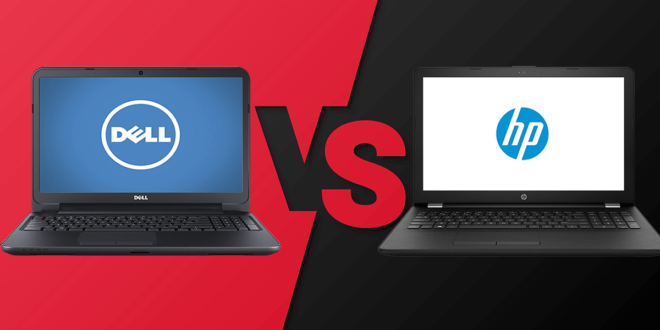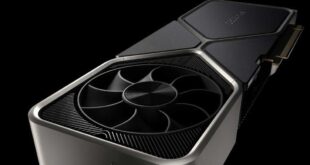Not All Computers Are Judged By The Same Factors
Let’s just start with what those who are especially enthusiastic about computer technology would likely say as a knee-jerk response: Dell is better. However, that’s not going to be the same for everyone; and the factors the computer enthusiasts generally rely on for their position may not be factors that influence your situation.
In this writing, we’ll explore Dell and HP brands to help give you a decent cross-section of data to determine which of these hardware options best fit your needs. In terms of software, they’re going to be similar—Dell and HP both run Windows Operating Systems or OS’s—explore this on Mashable.com, through this 2020 exploration of both brands under Windows OS.
A Few Things To Consider Before We Dive In
That’s not to say Windows represents the only sort of OS that can be run on Dell or HP computers. Linux has its place, and emulators can allow you to run most OS options on either brand.
However, OS’s that aren’t designed for a particular brand may have functionality issues. That’s becoming less of an issue as computational tech modernizes.
Even Apple computers used Intel processors in their devices for a time; though as of late 2024 they’re going back to ARM architecture. Technology and the corporations which manage it shift over time, so a wise move is securing computer solutions that are properly compatible. In short, when it comes to Dell and HP, surprising factors influence superior tech.

1. Brand Specifics
Only spend a few hundred on a computer, and you’ll get a year or two out of it. Spend $1k or more, and you should expect a good five years out of the machine; provided you treat it well. So with Dell and HP, you get more when you pay more. The premiere options for 2024 will be the Dell XPS and the HP Spectre x360.
Both of these will have different sizes and specifications. For the Dell series, you’ll have an i5 quad-core processor, 8GB of RAM, and an SSD of 512GB. It’s possible to upgrade to processors at the i7 level, and twice the RAM. Dell is the producer of Alienware, and though they’re pricier than HP and cheaper brands, Dell tends to have more quality.
Dell displays are being compared to those produced by Apple now, which is generally not what many buyers expect from Windows devices. The place where HP wins over Dell is battery life, Dells typically get 7 to 8 hours from their laptops, you can get up to 10 hours out of an HP.
When it comes to the HP Spectre x360, you the basic modern computing power you’ll expect. They come with 8GB options in terms of RAM, most buyers upgrade to 16GB. The Spectre comes with an i7 quad-core processor and up to 1 TB storage, average models have less space. Nvidia GeForce graphics cards are in higher-end HPs, Dells also use this graphics card.
2. Internal Architecture
HP laptops don’t tend to have the same durability as Dell, and those that are cheaper don’t deliver as much when compared to Dell. Where HP overruns Dell here is in the mid-range; and that only slightly. While in the main, HP devices and Dell tend to use a lot of the same hardware, the way those components are put together differs a bit.
If you’re in a situation where you need a more effectively-engineered internal architecture, and better durability, you’d probably be better to go with a Dell. If that’s not the case and there’s a cheaper HP, you’d probably be fine with that device.

3. Associated Budget
There are going to be several budgetary tiers. You can get a functional device with basic specifications for around $200. A $500 device will serve you better. For $1k, you’re going to be able to find a few deals on top-tier machines.
$2k and up, and you’re looking at the best of the best by many standards; laptops at the highest end are between $5k and $6k, with vanity options in the millions, and top-of-the-line gaming or film processing units pushing $20k to $30k.At the $1k range, you’ll be looking at HP x360 devices and the Dell XPS comes in at around $1,200.
If you’ll be using the computer more regularly and for more intensive tasks, transporting it with greater regularity than you would the HP, then it’s worth paying the extra $200 or so; unless you can find a marked-down deal. If that’s not the case, go with HP. If you’re going to get the best possible solution for your specific situation, you’ll want to explore in-depth resources.
Avoid perspective setting out to favor one or the other. Much of what defines your ultimate choice will be the needs you have and the budget you’re working with, according to BestLaptopsWorld.com. If you’ve got notable computer needs but a reduced budget, it can be worthwhile to look at older laptops; those a year or two behind. Technology innovation doubles on itself; a year old computer loses total value quickly.
4. Longevity
Public forum “Spiceworks” has many who tend to be of the opinion that HP devices last longer, despite their less expensive build and durability.
This could be the case, but it’s hard to tell; Dells are clearly superior in durability and engineering—but sometimes additional factors play against expected outcomes. Dell is the expected winner, but here it seems the public prefers HP.
5. Operational Security

Devices running Windows OS tend to be more susceptible to cybercrime owing to market dominance. While Apple outpaced Windows economically owing to the iPhone, because devices operating on Windows software tend to be less expensive, more people have them. Accordingly, hackers target these devices more regularly.
It’s always wise to buy more expensive models, as these are engineered to be more secure. The older your device, and the cheaper it is, the greater the associated vulnerability. To that end, Dell is probably a better buy; but if you’re doing work where cybercrime and lag aren’t a huge problem over a few years, an HP could be okay.
Finding The Best Laptop For Your Situation
Dell and HP are companies that started in America. This means associated quality standards, engineering, and available innovation tech. With Dell or HP, there are a variety of available options. On the cheaper end, you’ll have operational issues and mechanical issues.
Operational security, longevity, budget, architecture internally as well as externally and brand specifics will all play into which of these brands best fits your needs. It pays to do a little research, but generally, Dell produces a more qualitative product in the mid and high ranges. HP is a serious competitor, but it only outshines Dell in the mid-range.
At the low range, Dell is a better buy for what you pay. If you’re gaming or doing more intensive work incorporating frequent travel, Dell is also good. If not, HP will reliably serve your needs.
Which is better will depend on you.
 Comeau Computing Tech Magazine 2024
Comeau Computing Tech Magazine 2024




